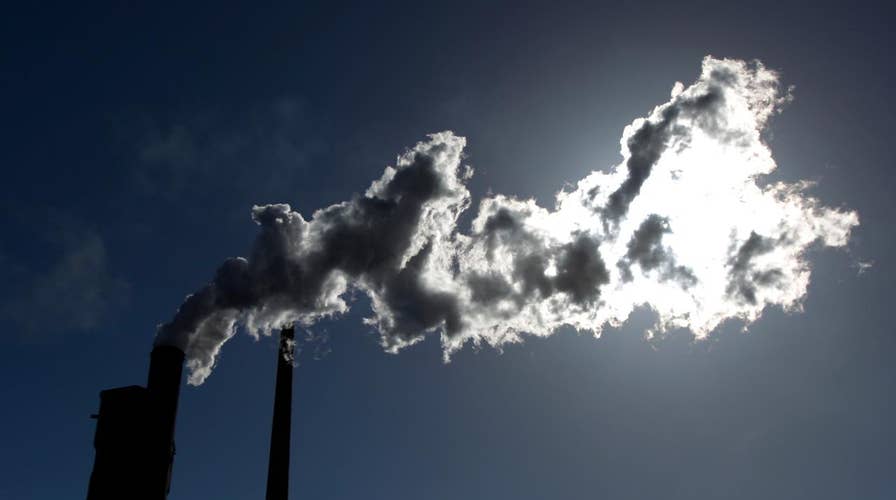Washington State proposes a new carbon tax
The state's Democratic governor wants to tax residents every time they fill up at the pump, heat their homes and even when they plug in their electric vehicles; Dan Springer explains on 'Special Report.'
SEATTLE – When President Trump was candidate Trump, he called climate change a hoax. Since taking the Oval Office, he’s said very little about greenhouse gasses and their impact on the planet. But he did issue a statement that he plans to pull the U.S. out of the Paris Climate Agreement, which aims to reduce emissions as a way to stop global warming.
But West Coast states are driving in the opposite direction, with designs of erecting a green wall built on taxing carbon.
“This is both an economic benefit for the state of Washington and a job creator,” said Washington Gov. Jay Inslee, a Democrat. “Jobs in the clean energy sector are growing twice as fast as the rest of the economy.”
In Inslee’s State of the State address, he announced his plan to put a tax of $20 per ton of carbon emitted. The tax would go up 3.5 percent every year. The result will be taxing residents every time they fill up their tanks at the gas pump, every time they turn the heat on at their home and even when they plug in their electric vehicles.
Businesses, like Boeing that compete internationally, would be exempt from the tax. The hit to residents and small businesses is expected to be $3.3 billion over the first four years. The money would go to so-called green jobs.
Critics see it as a money grab that won’t have any impact on climate change.
“You’re not just subsidizing clean energy or help to the environment,” said Todd Myers of the Washington Policy Center, a libertarian think tank, “you’re also subsidizing a big expansion in government bureaucracy, which does nothing to help the environment.”
British Columbia was the first in North America to tax carbon in 2008. The results are mostly viewed as good. Emissions are slightly down even as the population and the economy grow. But BC’s policy has actually been more of a tax shift that’s revenue neutral. Higher energy costs to individuals and businesses have been offset by lower income and business taxes.
California already has a cap-and-trade system, while Oregon lawmakers are considering what Democratic sponsors call Cap and Invest. It’s all an attempt to change behavior.
“When you have pollution going up into the atmosphere for free, that’s a market failure,” said Kristin Eberhard of the Sightline Institute, “And a carbon tax corrects for the market failure within the market.”
The fate of the carbon tax bills is uncertain in the Pacific Northwest. Meantime, there’s a similar movement forming in the Northeast. A bill in Massachusetts would also tax energy use, but residents would get a rebate at the end of the year, making it revenue neutral.





